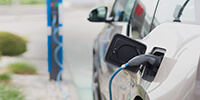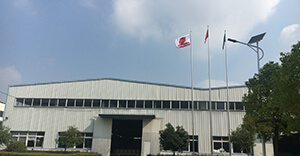Lead Carbon Batteries: a cost-effective option for off-grid energy storage
|
Wisdom Power® is a manufacturing and trading combo, specialized in sealed lead acid batteries for over 36 years. Can provide CE, ISO9001, UL, UN38.3 and test report to our clients.– is now supplying a range of cost-effective and high-performance lead carbon batteries from Battery Manufacturer Wisdom Power the whole world market. Lead carbon batteries are an appealing battery option for households looking to go partially or completely off the grid. Home battery storage options are growingThe number of solar battery storage options is quickly growing in the whole world as homes look to increase their energy independence and save money. One of the biggest decisions for a homeowner considering batteries in which chemistry type to opt for. At the moment, we can put the commercially available battery chemistry choices into three broad categories: 1) Lead, 2) lithium-ion, and 3) ‘other technologies’. Categories 1) and 2) are the largest and contain within them a fair amount of variation. Category 3) includes batteries that don’t fit into the first two – a ‘miscellaneous’ box containing the likes of the various flow batteries, ‘saltwater’batteries and nickel-cadmium batteries. Why lead type for off-grid installations? Before talking specifically about Wisdom Power’s lead-carbon batteries, it’s worth talking about lead type batteries more generally. Batteries in categories 2) and 3) above are still the ‘new kids on the block’ when it comes to home energy storage, even as they gain popularity and market share at a stunning pace (especially lithium-ion, of which there are many variations.) While many of these battery types would be great options for grid-connected solar systems, their cost-effectiveness comes into question when it comes to building a bank large for a home to go off-grid. Lead type batteries, on the other hand, have long been the standby for off-grid solar systems, and for a number of reasons they likely to remain the favorite for such applications, even as other technologies gain steam in the grid-connected market. All batteries that fall into the lead-acid category share several characteristics that make them a great match for off-grid systems. Some of these characteristics are explained below: Lead type batteries are affordable. Of all the battery chemistries on the market, the cost of lead type is usually the lowest. Lead type batteries have an alow recommended depth of discharge (DoD). For grid-connected solar-plus-storage systems, this is almost always a negative – but with off-grid systems, it can actually be a positive. Low DoD means that less of the battery’s nominal capacity (in kilowatt-hours, or kWh) can actually be used on a regular basis. If a battery has a 10kWh capacity but only 30% DoD, it’s actually usable capacity is only 3kWh. Because they have no grid connection, off-grid systems must be designed with several days (at least 3) of ‘energy autonomy’ – the amount of time they can go without solar resources (e.g. periods of heavy rain) to recharge the batteries. The two upshots of all this are that lead-type batteries allow energy stored at ‘deeper’ discharge to be accessed on the relatively rare occasions that it is needed, and on regular days the low DoD means the battery life is extended. By contrast, a household investing in a lithium-ion battery bank for their off-grid system would end up paying a lot more, even though most of the capacity will only be used occasionally, without having the benefit of an extended lifespan. Lead type batteries are well-understood. Because they’ve been around and in operation for decades, a good off-grid system designer/installer will be aware of the potential pitfalls of a system using lead type batteries – and there are quite a few people who have years of experience with them. There are well-established recycling streams for lead type batteries so disposal is not an issue. If you’re concerned about their environmental impacts, you can rest assured that it is easy to ensure that your used batteries will not end up in a rubbish tip. Lead carbon batteries vs other lead type battery types Wisdom Power is a well-known name in the battery space, and its products are used widely throughout the whole world. The company’s lead carbon batteries are one of a growing number of products of this type in the whole world. Lead carbon batteries have a number of advantages over other types of lead acid batteries, which include wet/flooded cell batteries and the two most popular types of valve-regulated (VRLA) batteries – absorbed glass-matt (AGM) and gel batteries. The primary advantages of lead carbon batteries over other lead-based batteries are: Lead carbon batteries have longer a longer cycle-life. If you take the battery’s ‘end of life’ to be the point at which it can only be charged/discharged to 80% of its original capacity, a lead carbon battery will last for 7000 cycles at 30% DoD daily – compared to 2000 – 5500 cycles at 30% DoD for VRLA-types and 800 cycles at 30% DoD for flooded batteries. Lead carbon batteries are better at sitting at partial states of charge (PSOC). Ordinary lead type batteries work best and last longer if they follow a strict ‘full charge’-‘full discharge’-full charge’ regime; they do not respond well to being charged at any state in between full and empty. Lead carbon batteries are happier to function in the more ambiguous charging regions. Lead Carbon batteries use supercapacitor negative electrodes. Carbon batteries use a standard lead type battery positive electrode and a supercapacitor negative electrode. This supercapacitor electrode is the key to the longevity of the carbon batteries. A standard lead-type electrode undergoes a chemical reaction over time from charging and discharging. The supercapacitor negative electrode reduces corrosion on the positive electrode and that leads to longer life of the electrode itself which then leads to longer lasting batteries. Lead carbon batteries have faster charge/discharge rates. Standard lead-type batteries have between maximum 5-20% of their rated capacity charge/discharge rates meaning you can charge or discharge the batteries between 5 – 20 hours without causing any long term damage to the units. Carbon Lead have a theoretical unlimited charge/discharge rate. Lead carbon batteries do not require any maintenance. The batteries are fully sealed and don’t require any active maintenance. Lead carbon batteries are cost-competitive with gel type batteries. Gel batteries are still slightly cheaper to buy upfront, but carbon batteries are only slightly more. The current price difference between Tubular Gel and Carbon batteries is roughly 10%. Take into consideration that carbon lasts for approximately 30% longer and you can see why it’s a better value for money option. Integration of Wisdom Power’s Lead Carbon batteries into Off Grid Solutions offers a new level of performance for off grid systems. A fully integrated all-in-one solution with some of the highest performing batteries in the market. For those opting to go with an off-grid system, they offer a cost-effective option with superior performance. Download a spec sheet for the 14AH-260AH model here (pdf). |













